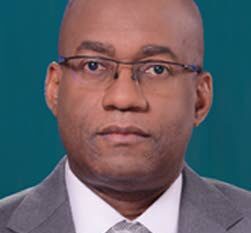JSC hears of proposed changes to exchange control laws

AS PART of ongoing efforts to strengthen this country's financial regulatory framework, Patrick Solomon, inspector of Financial Institutions at the Central Bank, has outlined potential amendments to the country's Exchange Control Act.
Speaking at the Joint Select Committee (JSC) meeting on finance and legal affairs on November 22 in Port of Spain, Solomon said the proposed amendments are still in the early stages of review.
The inquiry focused on the performance of the Financial Intelligence Unit (FIU) in improving anti-money laundering (AML) and countering the financing of terrorism (CFT) compliance.
Solomon said the bank is seeking legal advice to ensure any changes are legally sound and constitutionally viable.
"Normally, with legislation, it sometimes takes two or three years for it to be implemented. But we are doing our homework, our research," Solomon said.
"We will have a process that we follow. So, we do our research to determine the principal provisions we want to change and then go to the legal department to draft the legislation. It is a long process.
"Meantime, we are aware of the issues, and in some cases, we exercise forbearance."
He was responding to questions from committee members Jayanti Lutchmedial-Ramdial and Laurence Hislop about illegal buying and selling of foreign currencies.
Hislop asked whether people are breaching the act in situations where they buy from relatives who might be visiting from abroad.
Hislop also asked how much of a concern the illegal sale of foreign currency was, from the standpoint of retail outlets of various sizes, with signs posted about buying foreign currency.
Solomon referred to the law, saying people must be authorised dealers to buy and sell.
He added that as part of CBTT's market surveillance, it saw the ads and sought legal opinion.
"Based on the opinions that we got, if people buy or sell foreign exchange, they are committing an anticipatory offence of conspiracy, abetting, attempting, counselling or procuring the sale of foreign exchange, contrary to Section 6:1," Solomon said.
"It is arguably an offence. However, we looked at the act, and we asked senior counsel for their opinion. They are of the opinion that the legislation should have a specific offence."
He said to have this specific offence of advertising, the legislation needed to be amended.
Also representing the bank were deputy inspector of Financial Institutions Michelle Francis-Pantor and manager (AML Unit) Nadira Rahamatula.
Lutchmedial-Ramdial suggested the authorities consider whether they want to create an offence that could be used to criminalise somebody buying foreign currency from family coming from abroad.
Lutchmedial-Ramdial gave a scenario of a visiting aunt from Florida selling US$500 because she wanted cash to take a maxi. Lutchmedial-Ramdial believes this is not a money laundering risk per se.
She called on the authorities to look at thresholds, for example, allowing businesses to accept a certain amount of money from the public.
She also considered that businesses, particularly small businesses, buy goods with US dollars but cannot buy a certain amount from the bank.
The public hearing was streamed live on ParlView, the Parliament channel. Hazel Thompson-Ahye chaired it.
At the start, she said the objectives were to determine the money-laundering, terrorist-financing risk, trends in TT, and the effectiveness of policy and legislation in treating those issues.
It was also to assess the performance of the FIU's effectiveness in managing the country's anti-money laundering, counter-terrorist financing regime.
In his opening remarks, Solomon reminded the people that the FIU, CBTT and the Securities and Exchange Commission are all members of the National Anti-Money Laundering and Counter Financing of Terrorism Committee (NAMLC).
The three agencies collaborate frequently to ensure the financial sector's resilience to constantly evolving illicit financial threats.
He said such collaboration includes sharing information and working together on developing policies, guidelines, and legislation that reflect international standards for AML and CFT to ensure the domestic regime remains appropriate for addressing current and emerging money-laundering-risk issues.
"At the end of the day, we are stronger together," he remarked.
Attorney Cassandra Seetahal of the Office of the Attorney General and Ministry of Legal Affairs (Anti-Terrorism Unit) said the unit continues to work diligently towards fulfilling the obligations and the functions of the AG under the Anti-Terrorism Act, chapter 12:07.
She said members work closely to the implementation of the domestic framework as well as the international framework, which includes the UN and the mandates of UN Security Council resolutions.
She added that the unit is also a member of the National Anti-money Laundering Committee and works closely with all TT's key AML, CFT, and CPF entities.
Also representing the AG's Office were attorneys Meilan Choo-Ching Donawa and Kevon Persad.
Securities and Exchange Commission CEO Kester Guy said the commission is responsible for protecting investors within the securities space.
"We also contribute significantly to ensuring that market integrity is maintained, and we partner with other stakeholders to ensure that overall financial stability is also achieved," he said.
Chairman Thompson-Ahye also raised questions about suspicious transactions and reports.
She noted that in structuring transactions, attempts are made to break transactions into smaller amounts to avoid reporting thresholds.
She inquired how expertise is applied to identify structured transactions conducted electronically.
FIU director Nigel Stoddard replied that, in most instances, financial institutions are required to have transaction monitoring systems in place.

Comments
"JSC hears of proposed changes to exchange control laws"